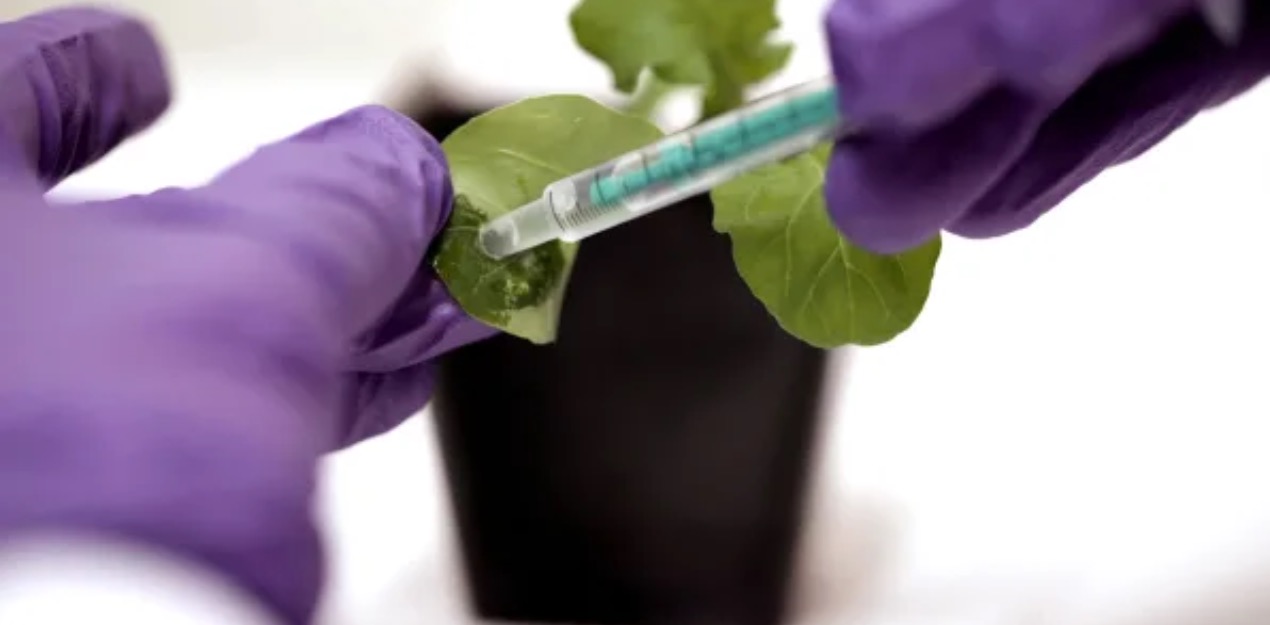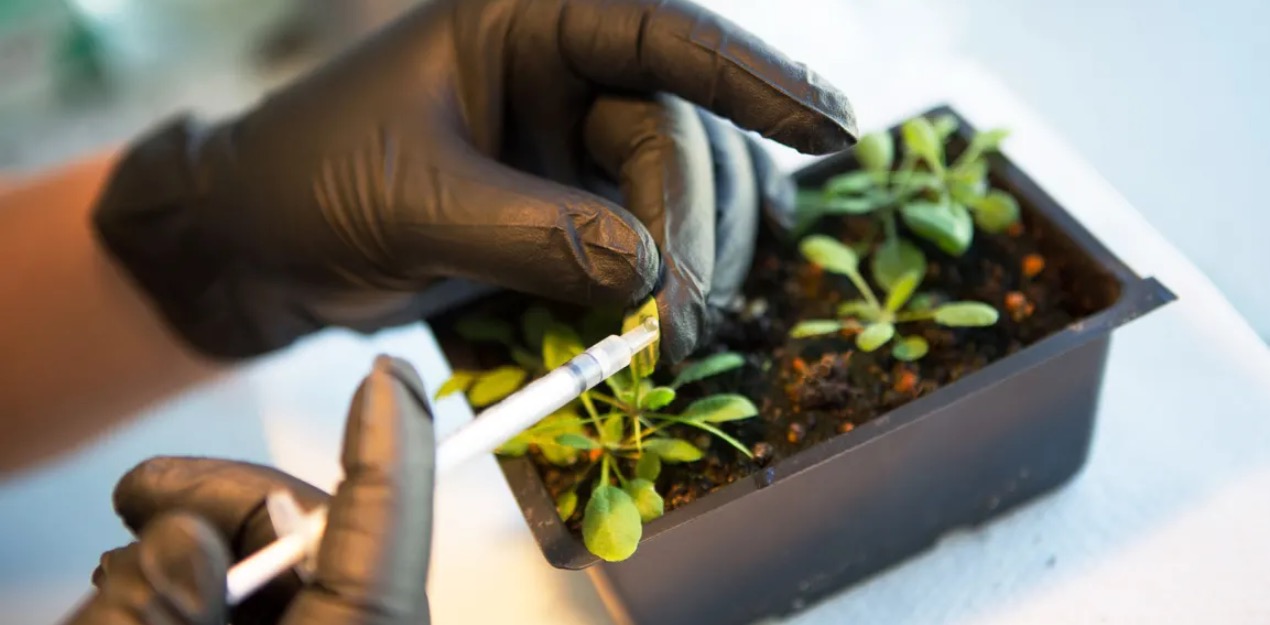AÑO
2021
CATEGORÍA
Trabajo
OBJETIVOS
Hambre cero, Trabajo decente y crecimiento económico, Vida de ecosistemas terrestres
PAL. CLAVE
farming, Nanobionics, nanosensors, soil health
PAÍS
United States of America
CRÉDITOS
MIT
LINK
https://www.fastcompany.com/90600720/scientists-have-turned-spinach-into-biological-sensors-that-email-environmental-alerts
Nanobionic spinach
Spinach with sensors sending texts on arsenic in soil
A new, engineered version of spinach can detect dangerous levels of arsenic in soil and then send a signal to a nearby cell phone to warn a farmer. It’s one example of a “nanobionic” sensor: plants that are being developed to serve as biological warning tools, not food.
“We started asking the question, can we make living plants to do some of the functions that humans do by stamping things out of plastic and circuit boards—things that go into landfills?” says Michael Strano, a chemical engineering professor at MIT whose lab is researching how to embed nanoparticles—tiny particles 50,000 times smaller than the thickness of a human hair—in plants.
For something like arsenic, which is naturally present in the soil in many areas but typically hard to detect, the new nanobionic sensors are more accurate than any other tool that exists and easier to deploy.
Other plant sensors could be used to warn farmers about stress in crops using the nanoparticles.





